Despicable Me
In fighting over history, Texas Republicans show they don't know what history is
OK, Florida, settle down. We see you. First your education board rejected a new AP class in African American studies because, it claimed, the course lacked “educational value.” And now your Governor, bless his pudding-eating heart, signed a law that famously credits slavery for teaching the enslaved skills that “could be applied for their personal benefit.” Less famously, the law requires schools to teach that the Ocoee Massacre, in which 60 people were killed in 1920 when several Black Floridians tried to vote, was instigated by Black agitators.
Florida is trying so hard to get credit for both-sidesing slavery and Jim Crow that y’all are missing out on a tweedy fight in Texas. It’s ostensibly over control of the Texas State Historical Association but is really about whether Texas history should be one, long Marvel canon, except this time with actual cannons.
And at the center of it is a book that came out more than two years ago. Maybe you’ve heard of it.
On Thursday, a state senator named Mayes Middleton sent a letter on official state stationary to the Dean of the College of Liberal Arts at the University of Texas asking her to fire a history professor as the TSHA’s Chief Historian.
As a historian, the TSHA Chief Historian should be actively promoting Texas history and promoting student engagement with our state’s rich history in a way that does not try to re-write it.
See? Now I knew I shouldn’t have started with that sentence. A bunch of you are all up in your umbrage, having taken more than your share (again!) because a foolish man wrote something foolish. Of course a historian’s job isn’t to promote a positive, patriotic version of history to schoolchildren, as the senator is clearly implying without coming right out and quoting Josef Stalin saying, “Ideas are more powerful than guns. We would not let our enemies have guns, why should we let them have ideas.” Hey, smartypants! Focus. I haven’t even gotten to the good part yet.
Mr. Buenger frequently paints our exceptional history in a negative light and even wrote a positive review for the…
OMG here it is! The good part!
…despicable book “Forget the Alamo,” claiming that our beloved battle cry “Remember the Alamo” is “wartime propaganda.”
Despicable! Me!
Maybe I should back up. About half of you subscribers are new since the last time I wrote about Forget the Alamo: The Rise and Fall of an American Myth, a book Bryan Burrough, Chris Tomlinson, and I co-wrote back in 2021. One of our arguments in the book was that keeping slavery legal — which Mexico wanted to abolish — played a role in the Texas secession. This idea is so commonplace among historians that you can find it in the Texas Handbook, a respected publication that’s constantly updated by the TSHA.
Disputes over slavery did not constitute an immediate cause of the Texas Revolution, but the institution was always in the background as what the noted Texas historian Eugene C. Barker called a "dull, organic ache." In other words, it was an underlying cause of the struggle in 1835‑1836.
As soon as our book came out, though, many Texas Republicans started coming unglued over the notion that the Alamo is essentially a Confederate battlefield and that one of the freedoms the secessionists were fighting for (other than the freedom from paying taxes or obeying Mexican laws) was to continue to enslave humans, which was crucial to preserving the cotton industry.
“nefarious cancel culture cretins”
Allen West, writing not as a war criminal but in his then-role as chairman of the Republican Party of Texas, called us “nefarious cancel culture cretins,” which I still think should be a blurb on the back cover of the paperback. But we didn’t really hit it big until Assistant Governor Dan Patrick ordered the Texas state history museum to disinvite Bryan and Chris from an event where they were to talk about Texas state history. “This fact-free rewriting of TX history has no place @BullockMuseum,” he later tweeted.
The resulting brouhaha — in which I drank a lot of brew and said, “Ha, ha” a lot — put us on the New York Times bestseller list. Look, here’s proof (that I never have to go back and look at to prove it happened):
The book was officially a Big Deal thanks to Patrick’s fat-fingered attempt at state censorship. Bryan went on NPR’s Fresh Air. Chris was on MSNBC a lot. I went on, I don’t know, a few podcasts, but that’s not the point. The point is that for a week for two we made a mark on the space-time continuum which we all assumed would go on its happy way into infinity, leaving us behind dizzy and slightly happier. Surely Texas Republicans would drop us like an underaged intern and find a new hobby, right?
Apparently these swains don’t like to be called Shirley, because boy howdy, they have not shut up about the book. “There’s a book with the picture of the Alamo on it, and a big ‘X’ through it,” said the Texas Land Commissioner during the last campaign in which she repeatedly mentioned our book in her stump speech. The Texas GOP platform even implicitly punched at us and others, and we didn’t get them anything.
Now comes the big angriness at the TSHA, where the board is trying to fire its executive director, a rich fella who has given and raised a lot of money for the TSHA. Now, though, he criticizing the TSHA for pushing an agenda “that demeans the Anglo efforts in settling the western part of the United States for the purpose of spreading freedoms for all.”
To which 10 former TSHA presidents said, “Allow me to retort.” In an open letter, they noted that his slaveholding ancestor did not show up in Texas with a clean moral balance sheet: “Does Bryan seriously contend that his pioneer great-great-grandfather settled on his Brazoria County plantation with his thirty-eight slaves in order to secure ‘freedoms for all’?”
Once again, our book goes where reason fears to tread, at least among the elected set. At the core of the fight over Texas history is which version will be accepted: the warts-and-all version that historians have been trying to tell for more than a century with, I should note, increasing success, or the heroic Anglo narrative that Texas politicians, especially the Anglo ones, insist upon.
“Does Bryan seriously contend that his pioneer great-great-grandfather settled in Texas with his thirty-eight slaves in order to secure ‘freedoms for all’?”
“Texas exceptionalism is deeply rooted in our history and that history is under attack —to be minimized, to be revised or to be erased,” posted the state senator last month on Facebook. “Thank you JP Bryan [the embattled executive director] for your fight to make sure that the Texas State Historical Association stays true to that history and to ensure that ‘Forget the Alamo’ proponents do not prevail.”
Another big point of Forget the Alamo is this conflict we’re dealing with now: Historians try to insert the historical record into our shared understanding, whether its textbooks, the Texas Handbook, movies, or curricula, and politicians accuse them of politicizing history by advocating for something other than the heroic myth. None of these politicians are showing the slightest self-awareness that they are repeating the same history that we covered in the back half of Forget the Alamo.
The open letter from the historians takes this point further when they write, “The problem with Bryan’s attack on academics in the TSHA is that it displays a fundamental misunderstanding of what the study of history is.”
“The problem with this attack is that it displays a fundamental misunderstanding of what the study of history is.”
It’s not a historian’s job to sell a positive version of history that buttresses the political needs of the governing class, just like it’s not a politician’s job to — oh, I don’t know, let me think of a ludicrous hypothetical example — do their own pharmaceutical research. Unfortunately, in Texas we are governed by those who think they possess the expertise to lecture historians on what the proper version of the historical record is and then to use their governmental power to enforce this version in state education standards. This is profoundly stupid.
“It is also dangerous,” note the historians in their letter, and I think I’ll give them the last word. “History shows that the first thing authoritarian governments do when they come to power is shut down the archives, censor what is taught and written, and produce propaganda glorifying a mythical past that they promise to restore.”
Jason Stanford is a co-author of NYT-best selling Forget the Alamo: The Rise and Fall of an American Myth. His bylines have appeared in the Washington Post, Time, and Texas Monthly, among others. Email him at jason31170@gmail.com.
Further Reading
Do you remember the Alamo?
Welcome to The Experiment, the weekly newsletter where we’re finding our way through the Uncertain Now. Each week, I tell you what I’ve been thinking about and share contributions from some of my favorite writers. This week, I’ve been remembering the Alamo, my friend
Critical Alamo Theory
Welcome to The Experiment, where we’re on the cover of Texas Monthly and on the summer reading lists for The New York Times and the St. Louis Post-Dispatch. Apparently this book is really happening. If you want to read the book that Kirkus called “an iconoclastic, romping, bull’s-eye volley at an enduring sacred cow—popular history at its most engaging …
Convergence
Welcome to The Experiment, where our little book has become a soldier in the culture war, and Jill Charlotte Stanford, no relation, has a great story about my uncle and Ginger Rogers. Yes, that Ginger Rogers. As always, we suggest things to do (get a few small wins
How could anyone have possibly seen this coming from a mile away?
Woke up this morning to a strange email crediting me with influencing the Texas Republican Party platform. Apparently the delegates — amid their celebrations of Pride by kicking out the Log Cabin Republicans and calling for the end to “homosexual marriage” — took time to make various declarations about a historical site down in San Antonio.
We set up a merch table in the back where you can get T-shirts, coffee mugs, and even tote bags now. Show the world that you’re part of The Experiment.
We’ve also got a tip jar, and I promise to waste every cent you give me on having fun, because writing this newsletter for you is how I have fun.
Buy the book Texas Lt. Gov. Dan Patrick banned from the Bullock Texas History Museum: Forget the Alamo: The Rise and Fall of the American Myth by Bryan Burrough, Chris Tomlinson, and myself is out from Penguin Random House.



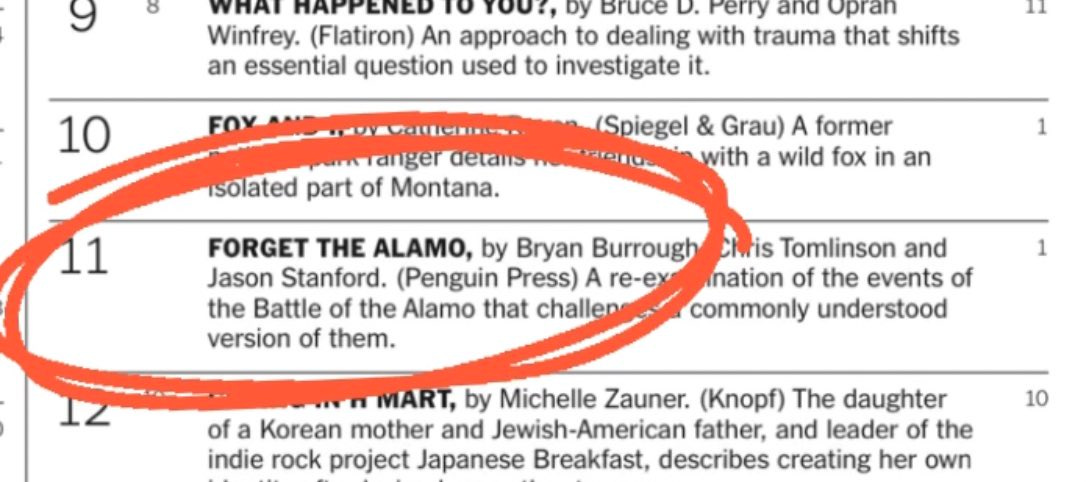
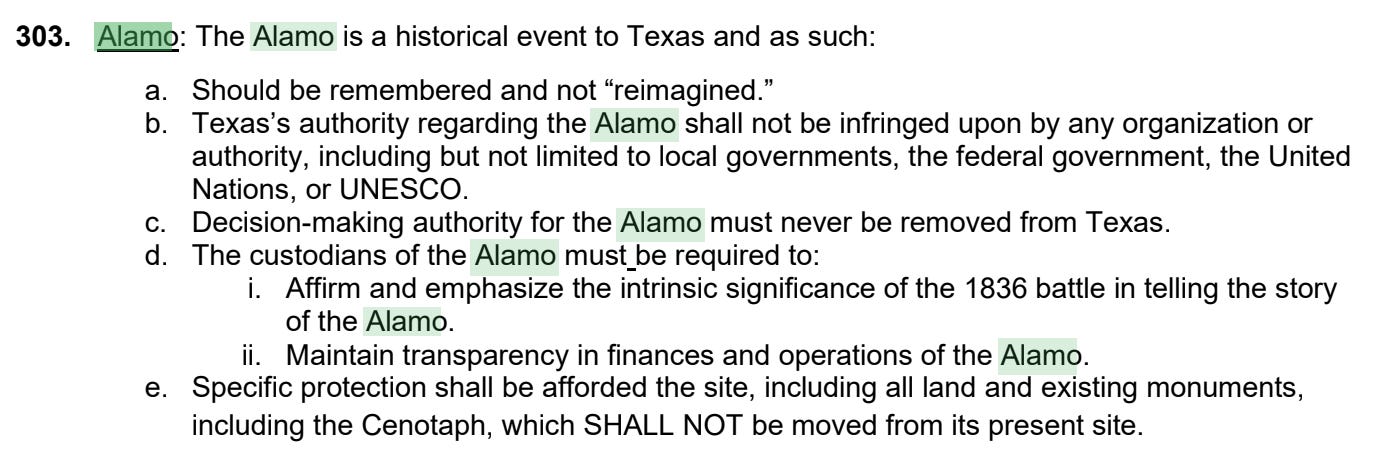
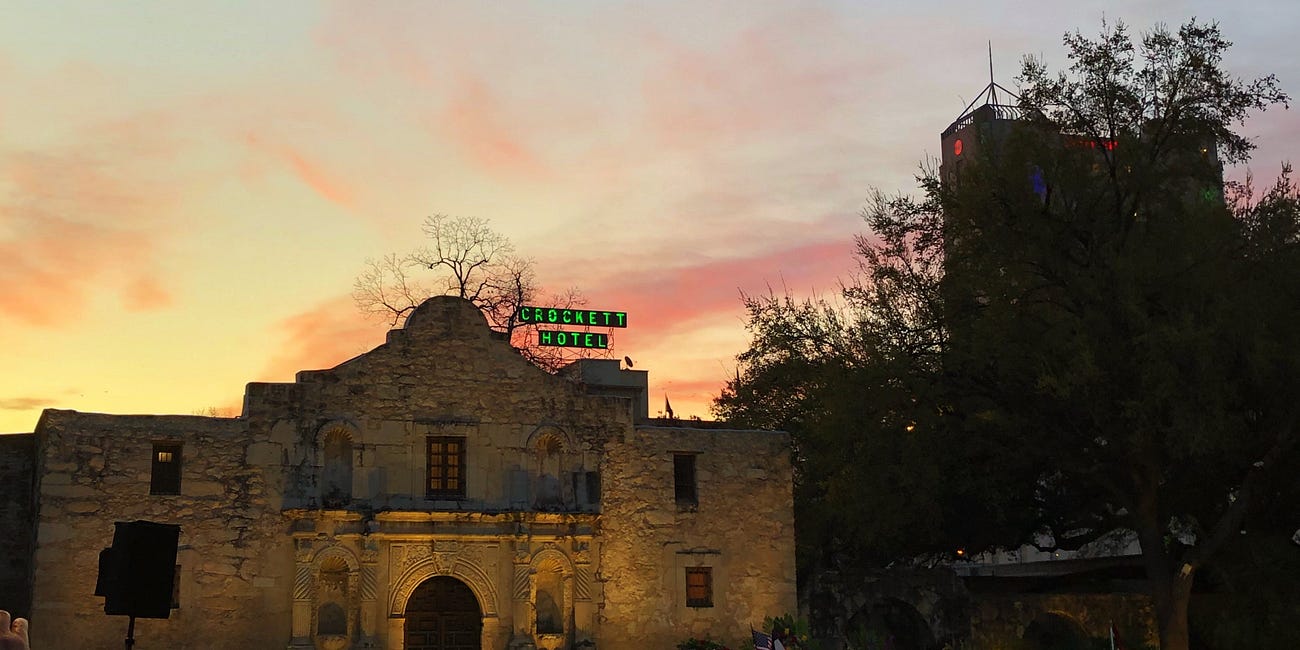
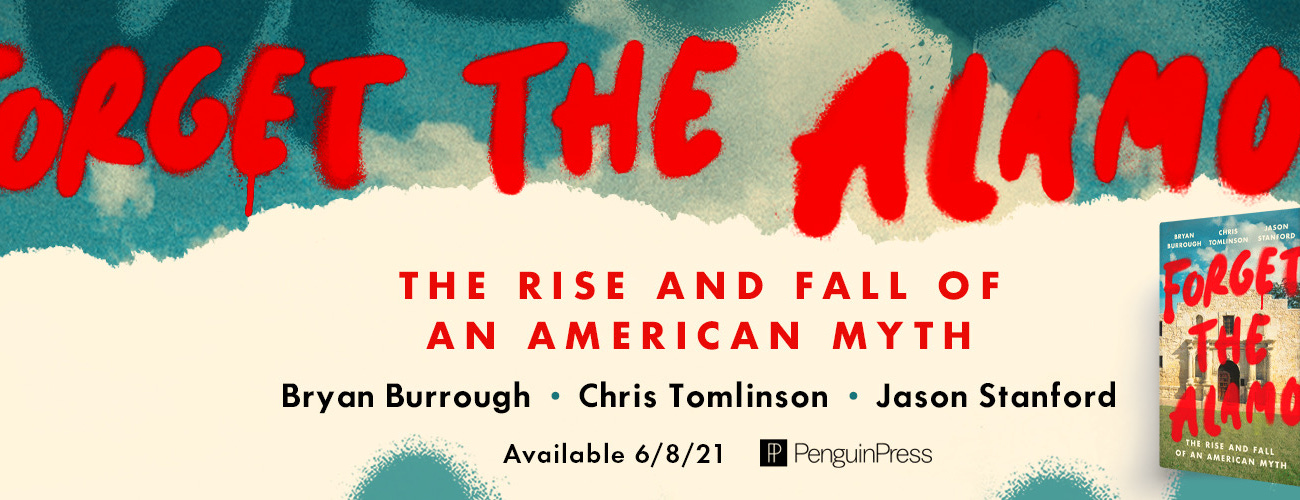
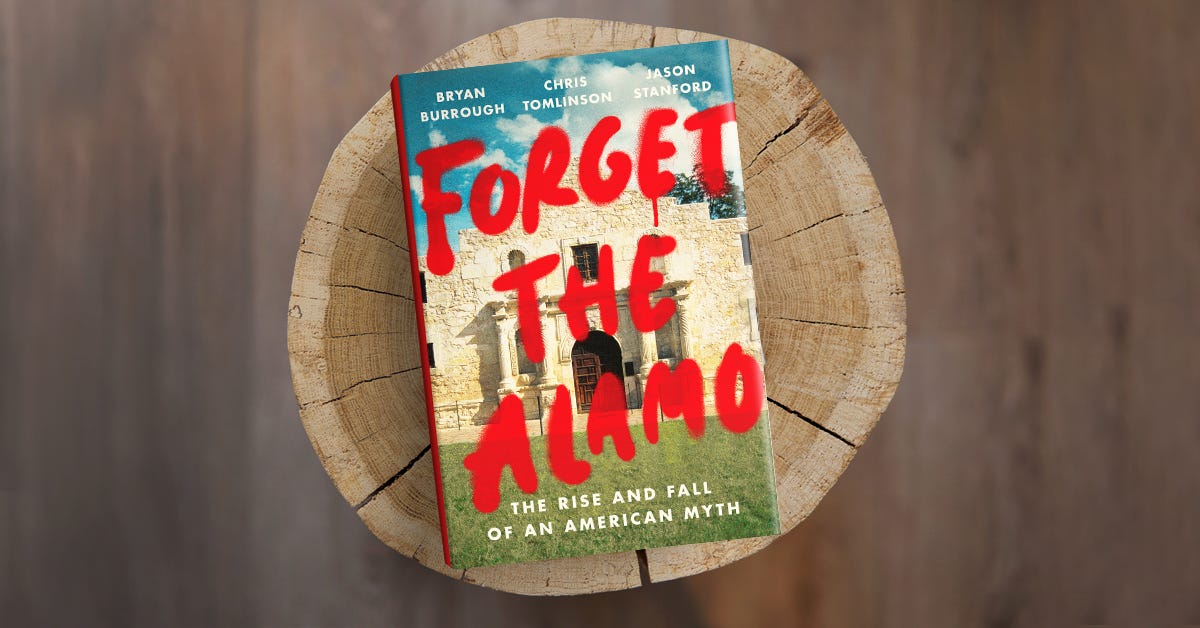

Hey look, it's Mayes Middleton: 🤡